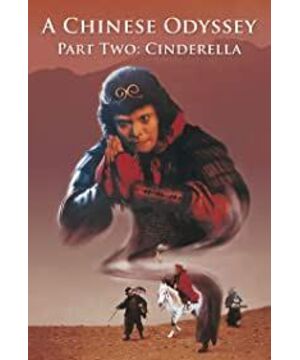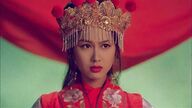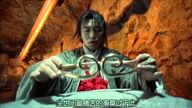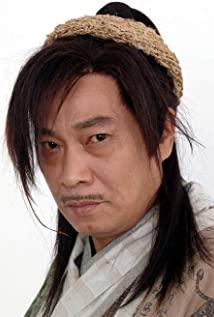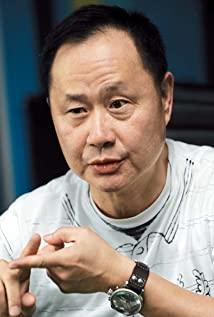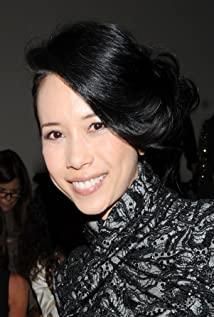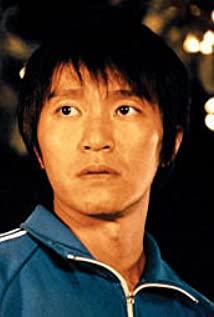Some people regard the supreme treasure finally wearing the golden hoop to become the Monkey King only as the arrangement of fate. I disagree with this point.
According to my understanding of Buddhism, I think the choice of the Supreme Treasure is conscious and voluntary.
"All the dharmas are like dream bubbles, like dew and electricity, and should be viewed in this way." Buddhism believes that love
and hatred in the world are illusory and short-lived. People's feelings and thoughts are often chaotic and cannot be controlled by themselves. After watching "The
Westward often say: "Oh, the feelings of the Supreme Treasure for Bai Jingjing are fake, and the feelings for Zixia are
real." The film seems to be guiding us to see it this way. But who can prove this? Why do you
say wrongly? He used to be willing to do anything just to save Jingjing's life. It is also natural for him to fall in love with Zixia.
Who doesn't love such a lovely and beautiful girl?
The Supreme Treasure has never understood his own heart. If Jingjing was just an ordinary girl, if she hadn't entered someone else's house.
The ability of the heart, maybe she and the Supreme Treasure will really get married and live a happy life, just like most
couples in the world. However, the fact is that Supreme Treasure finally found that his heart was unknowingly occupied by others. Bai Jingjing
left him.
This puts him in a dilemma. Should I admit this feeling? Shouldn't you admit it? If
he admits it, can he guarantee that he can really love her for 10,000 years? Can he guarantee that his heart will no longer be occupied by others? Can
you? Can't you? He used to be so persistent that he loved Jingjing! But it was only a few days back five hundred years ago...
In fact, this came into contact with the teachings of the Buddha-Yang: all conditioned methods are like dream bubbles. Love for Jingjing, love for Zixia
Love, although it is unforgettable in the eyes of the parties, but from the eyes of the Buddha, it is all born from the delusions of people,
so it is also short-lived and illusory, so the Supreme Treasure cannot control its own heart and cannot recognize its own. Heart. In fact, which of the feelings in his heart
are true and which are false, I am afraid that he himself does not know. At this time, for him, the only feasible
way, the only way to get him out of this dilemma, seems to be to deny everything. Besides,
what do?
When he found out that he didn't love Jingjing, Supreme Treasure looked so frustrated, but he was just confused at that time. In
Buddhism, this roughly corresponds to "turning up the seed," which means being aware of the confusion and vainness of one's feelings, but
not knowing what to do. When he was fatally stabbed, the moment before the end of his life, his heart suddenly became clear, and all the things he didn't
understand became so clear. According to Buddhism, he is "enlightened". This kind of sudden enlightenment under special
circumstances is actually quite in line with the Zen philosophy of "apocalyptic enlightenment", but compared to the "slap to the head" in Zen Buddhism, this "slap to the head
" is really cruel and thrilling.
As far as I think, the spiritual path of the Supreme Treasure has been exhausted. He completes the molt from mortal to seeker. He
recognized the impermanence of the world—the impermanence of love and the impermanence of life, and he chose the path of seeking wisdom without hesitation. After that, although
there was a little bit of repetition—when Zixia died for him, she basically went ahead regardless. At the end of the film, he kissed Zixia's avatar by borrowing someone else's
body, which is just the comfort of the screenwriter and director to us people in the world. After all, the vast majority of the audience watching this
movie is not a Buddhist.
View more about A Chinese Odyssey: Part 2 - Cinderella reviews


